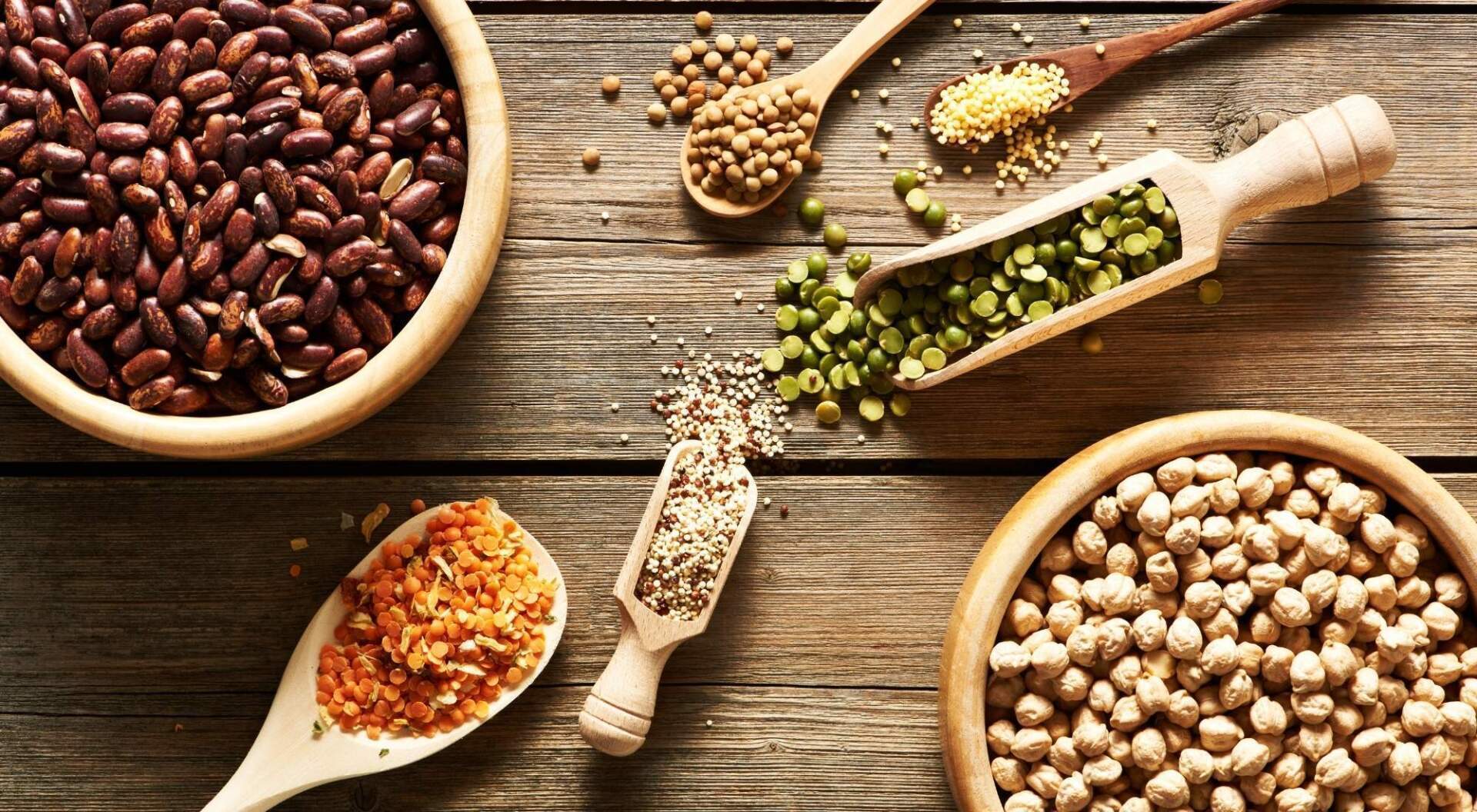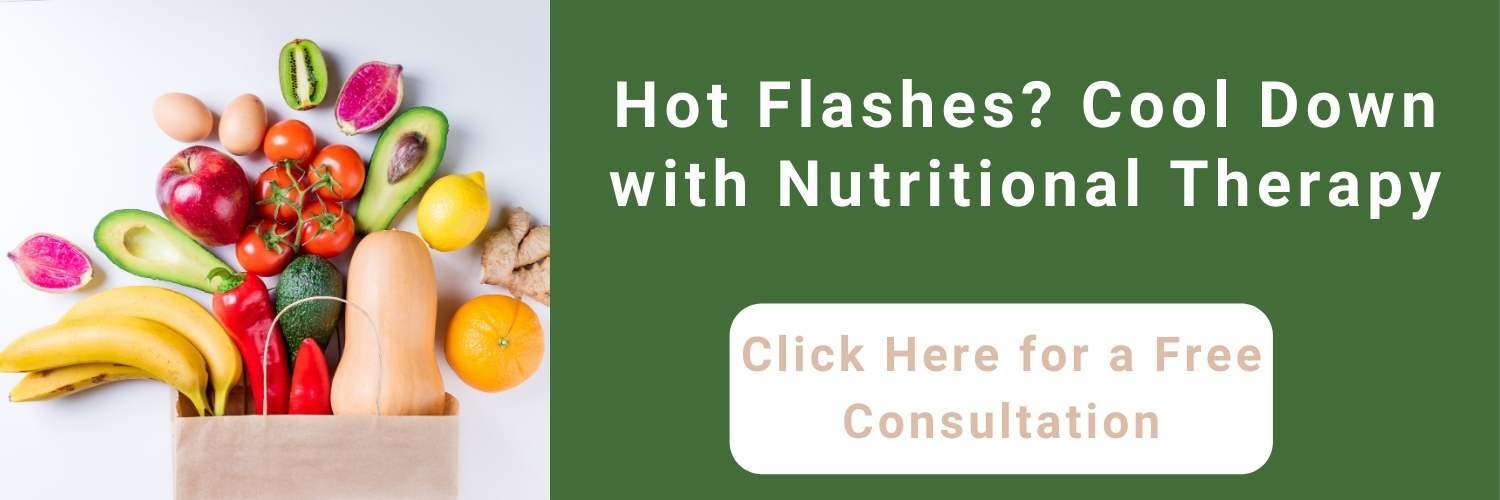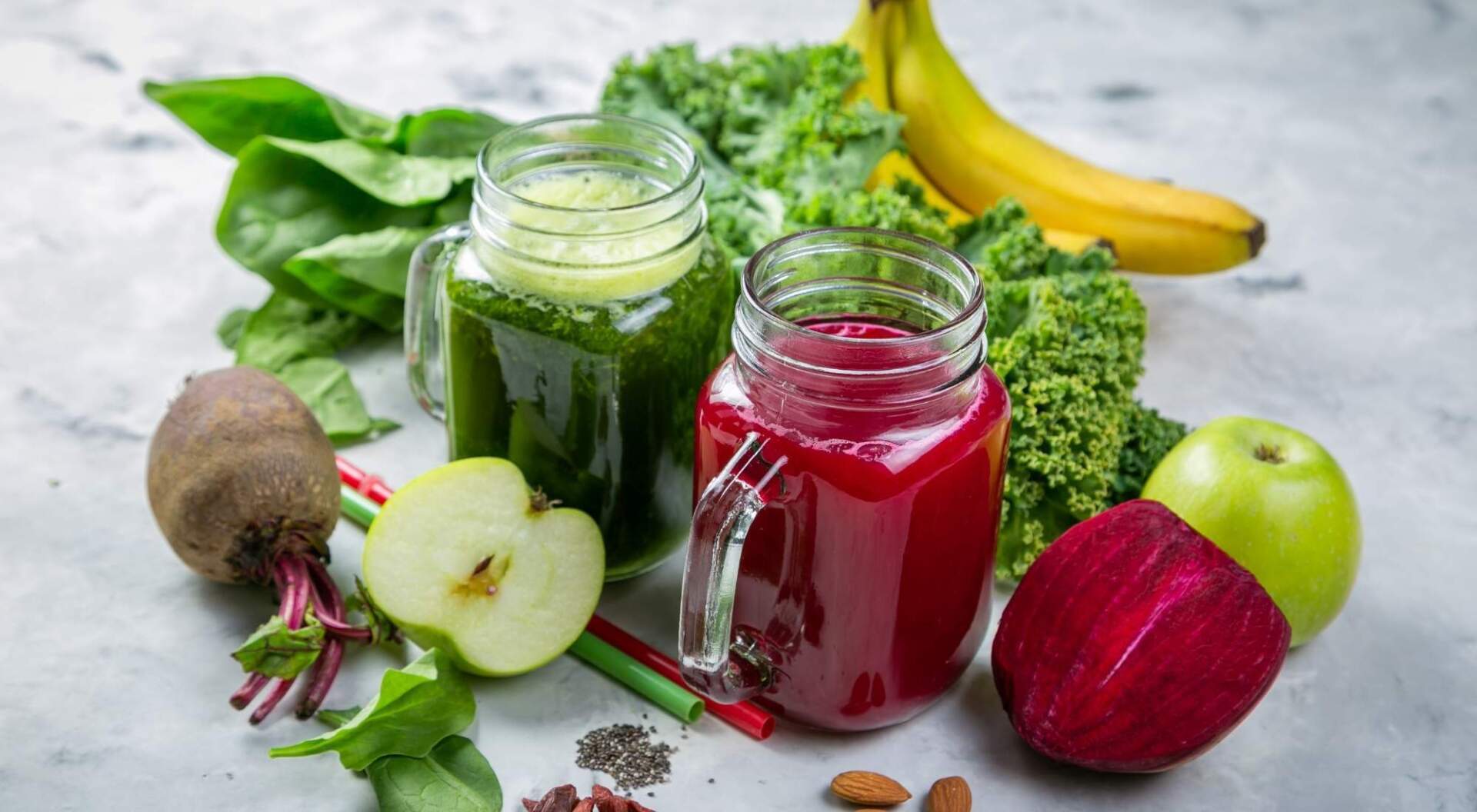A Complete Guide To The Best Cooling Foods For Hot Flashes: How To Stop And Avoid The Discomfort
"The content below is not intended to be a substitute for professional medical advice, diagnosis, or treatment. Always seek the advice of your physician or other qualified health provider with any questions you may have regarding a medical condition."
The hot flashes can come out of nowhere, complete with pools of sweat and cascading heat.
You know this — it’s a common sign of menopause.
While the discomfort might not be entirely avoidable, there have to be ways to reduce the frequency or duration, right?
The good news is yes, you can improve hot flash symptoms with cooling foods. For hot flashes, some of the best solutions can also be the simplest.
In this article, we’ll talk about the best cooling foods for preventing hot flashes and foods that can help stop a hot flash in its tracks.
Table of Contents
- What Are The Best Foods To Stop Hot Flashes In Their Tracks?
- 5 Cooling Foods For Hot Flashes That You Need Now
- 9 Foods That Fight Hot Flashes Before They Start and Stop Them From Taking Over Your Life
- Are There Any Foods To Avoid For Hot Flashes?
- What Is Nutrition Response Testing?
- How Nutrition Response Testing Can Help You With Your Hot Flashes
What Are The Best Foods To Stop Hot Flashes In Their Tracks?
When dealing with any sort of hot flash or flare-up there are two main questions that come to mind:
- How do I reduce the frequency of this issue?
- How do I reduce the intensity of this issue?
Hot flashes and night sweats occur when fluctuating levels of estrogen cause the body to struggle to maintain a steady temperature.
In this article, we cover both the best foods to stop hot flashes in their tracks and also foods that help prevent hot flashes from occurring too often.
While some of the foods overlap, both are important to keep on hand and in rotation as part of your healthy diet.
At HealthierU , Dr. Donna Sergi has helped thousands of patients get to the root cause of their hot flashes and other ailments by targeting proper nutrition.
If you are suffering from hot flashes then you too could be assisted by proper nutrition and Nutrition Response Testing. Read on to learn more.5 Cooling Foods For Hot Flashes That You Need Now
Have you ever eaten a spicy dish and experienced that flush of heat throughout your body? This is a perfect example of how some foods are warming while others are cooling.
Compare that's how you felt after eating a slice of watermelon on a hot day.
Much cooler, right?
Keeping your body in balance with foods that both warm and cool you will be vital during menopause in your efforts to limit hot flashes.
Here is our list of five cooling foods for hot flashes that you need now:
#1: Melon
Melon has a diverse nutrient profile which may be responsible for its many potential health benefits.
Melon’s big-hit nutrients are:
- Beta-carotene: Cantaloupe contains just as much beta-carotene as carrots. Beta-carotene is important for eye health, immune system function, and red blood cells.
- Vitamin C: Just 1 cup of cantaloupe contains over 100 percent of the daily Vitamin C requirements. Vitamin C is essential for the production of blood vessels, cartilage, muscle, and collagen in bones.
Melon is about ninety-five percent water , making the ultimate cooling food.
They are also a diuretic, which means they will help your body flush out toxins.#2: Coconut
The mighty coconut is a great source of digestion-friendly and satiating fiber.
It is also full of vitamin B6, iron, and minerals, including:
- Magnesium
- Zinc
- Copper
- Manganese, and
- Selenium
You can consume the cooling coconut in many ways, such as:
- Coconut milk
- Coconut oil
- Coconut water
- Shredded coconut
- Coconut flour
#3 Greens
Leafy greens such as:
- Spinach
- Kale
- Collard greens, and
- Romaine lettuce
… are all high in water content, making them easy to digest.
This easy digestion means your body saves energy and stays cool.
The vitamins, minerals, and phytonutrients available in green leafy vegetables may help reduce inflammation and promote overall health.
#4 Water-Based Vegetables
Water-based vegetables such as:
- Lettuce
- Mushrooms
- Eggplant
- Green leafy vegetables
- Asparagus
- Cucumber, and
- Spinach
… all have a high water content that may help with hot flashes.
As we age, our bodies become less able to conserve water. Interestingly, the more well-hydrated you are, the less likely you are to have a hot flash.#5 Green Tea
Green tea is minimally oxidized and therefore is generally seen as the most cooling tea.
Of all four types of tea, green tea contains the most flavonoids .
You can compare this with black teas which are fully oxidized and are therefore considered warming teas.
9 Foods That Fight Hot Flashes Before They Start and Stop Them From Taking Over Your Life
The uncomfortable heat that seems to appear for no reason. The coating of sweat that seems to come from nowhere. The flush that radiates across your neck and chest.
No one wants these symptoms of hot flashes, but if we're unable to fully get rid of them at least you want them to happen as infrequently as possible.
By eating certain foods as a healthy part of every diet, you can reduce the frequency of hot flashes and keep them from becoming an uncomfortable occurrence.
Here we have 9 foods that fight hot flashes before they start:#1 Soybeans and Other Legumes
A 2012 study in the Journal of the Academy of Nutrition and Dietetics showed that soy products can have a marked anti-inflammatory effect.
It is believed that phytoestrogens and omega-3 fatty acids found in soy products reduce inflammation.
Falling levels of estrogen in the body can cause havoc on your internal thermostat.
This is one of the primary causes of hot flashes.
Some studies have shown that the phytoestrogens found in soy products can mimic the effects of estrogen.
Besides soy products, phytoestrogens can also be found in:
- Chickpeas
- Navy beans
- Lentils
- Flaxseeds, and
- Mung beans
#2 Garlic
Garlic has always been a tasty addition to almost any dish and now there are even more reasons to add it to as many recipes as possible.
Garlic, as well as onions and leeks, contains diallyl disulfide , an anti-inflammatory compound that has been used as a therapeutic medicinal agent for centuries.#3 Bell Peppers
When it comes to bell peppers, it's the brighter the better.
Bright-red bell peppers are the highest in antioxidants such as vitamin C.
They contain the powerful chemical compound capsaicin which is known to help reduce inflammation.#4 Leafy Green Salad
Increasing your overall hydration can help reduce hot flash frequency and intensity.
Leafy vegetables also have many vitamins and minerals that help your body stay in balance.
Not only are they a great source of calcium, but also magnesium, and Vitamin D as well.
Some of the best leafy greens to keep in mind are:
- Romaine Lettuce
- Kale
- Bok Choy, and
- Spinach
#5 Berries
Berries, particularly...
- Strawberries
- Blueberries, and
- Raspberries
...are a cooling food that provides the almighty vitamin C.
Vitamin C is one of the best antioxidants, and since our bodies are not able to produce vitamin C by themselves, it is essential to receive the correct amount of this water-soluble vitamin from our diets.
A 2013 study published in the American Journal of Clinical Nutrition found that menopausal women who consumed a Mediterranean-style diet that was high in fruits and vegetables were about twenty percent less likely to report hot flashes and night sweats.#6 Pineapple
In or out of a piña colada, the high levels of vitamin C in pineapple can have positive health benefits.
Vitamin C helps prevent chemical changes to estrogen. This hormone-regulating fruit, therefore, can help keep you hot flash-free.
Just like berries, pineapple can be an excellent part of your newly-discovered Mediterranean diet.
#7 Whole Wheat Pasta
Finally, here is a great excuse to eat your noodles.
White flour pasta is too high in carbohydrates and starch, which can actually trigger a hot flash.
But whole-wheat pasta, on the other hand, is a whole-grain food that is a great source of fiber , which helps manage blood sugar, as well as other important vitamins.
Some other whole-grain foods to consider as well are:
- Brown rice
- Whole-wheat bread
- Barley
- Quinoa
- Khorasan wheat
- Rye
#8 Fatty Fish
Fatty fish is one of the few food-based opportunities we have to get vitamin D from our diet.
In addition to this, essential fatty acids from fish and plant sources ( like flax ) might help reduce the incidence and severity of hot flashes.
One to two grams of fish oil per day is a good level to target.
Some of the fish highest in omega-3 fatty acids include:
- Mackerel
- Salmon
- Anchovies
#9 Mushrooms
The next time that you order pizza or make a stir-fry, be sure to load it up with mushrooms.
Mushrooms are full of the mineral selenium.
Selenium is an antioxidant that can:
- Reduce stress
- Protect your heart
- Improve your neurological health; and
- Protect your thyroid function.
In other words, mushrooms are an incredible food to work into your everyday diet.
One of the top reasons to regularly consume mushrooms is selenium’s ability to reduce stress.
Stress creates a surge in epinephrine, which is one of the triggers of hot flashes.Are There Any Foods to Avoid For Hot Flashes?
After looking at foods to help avoid hot flashes and bring symptom relief, it makes sense to think about what foods to avoid.
Limiting or avoiding these foods will benefit most of us, but especially those of us dealing with hot flashes :
- Processed food
- Gluten
- Excessive red meat
- White or processed bread
- Refined sugar
- Artificial sweeteners
What is Nutrition Response Testing?
Nutrition Response Testing is part of holistic nutrition.
It is a form of nutritional therapy used to discover the cause of health-related symptoms so your holistic nutritionist can create a plan to help alleviate them.
NRT is based on the understanding that your body knows intuitively what it needs to be healthy and in balance with itself.
Nutrition Response Testing is a tool used by your holistic nutritionist to determine the best holistic diet to alleviate the symptoms you’re experiencing.
This means that holistic nutrition not only works but is also customized to your unique body.
How Nutrition Response Testing Can Help With Your Hot Flashes
If you are experiencing hot flashes that make you uncomfortable and embarrassed in public, HealthierU can help.
Dr. Sergi is a trusted holistic nutritionist in Brooklyn, New York, and one of only 300 Master Clinicians with an Advanced Training Certification in Nutrition Response Testing.
Request a complimentary Nutrition Response Testing Consultation with Dr. Sergi today to finally find relief from hot flashes.





